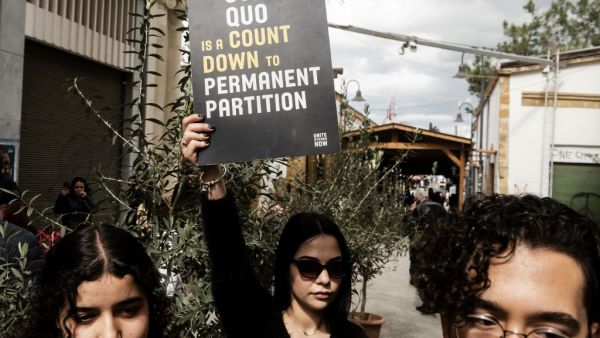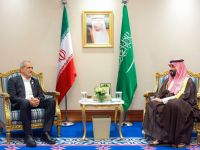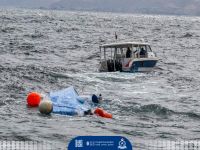Protesters in Cyprus breached police barriers in the heart of the Island nation's ethnically-divided capital on Saturday, angry at what they saw as the politically-motivated closure of crossing points.
Four of nine crossings along the 180 kilometer (120-mile) length of the United Nations-controlled buffer zone were closed, in a move the government said was a measure to combat the spread of the novel coronavirus, according to AP.
The border seperates a breakaway Turkish Cypriot north from an internationally recognised Greek Cypriot south.
In light of the absence of confirmed cases of the virus on either side of the divide, protesters said the closing had nothing to do with limiting the spread of the virus and ascribed 'political motives' to the measures.
Speaking to reporters, Cypriot President Nicos Antastasiaddes defended his decision, saying it would better enable police and medical staff to screen for possible carriers of the virus crossing into the north or south.
He added that the fact that over 3,000 Iranian students and their relatives live in the north prompted the move.
Turkish Cypriot leader Mustafa Akinci criticized the closing, saying that any action should have been taken at the island's entry point and in consultation with Turkish Cypriot authorities.
Cyprus was divided in 1974 following the Turkish invasion of the island, following a coup by supporters of union with Greece.
Only Turkey recognises a Turkish Cypriot declaration of independence and although Cyprus is a European Union member, only the southern part enjoys full membership benefits.
The country's chief of police was instructed to investigate reports that protesters attacked a Greek Cypriot soldier at the Nicosia crossing point.
Cypriot media broadcast video that allegedly show a man using his open palm to shove the soldier in the face while trying to get past the police barriers.
The move came after Turkey opened its gates to Europe this week saying it could no longer cope with refugees from war-torn Syria.
Around 2,000 people including women and children arrived on Sunday morning from Istanbul and walked through a field towards the Pazarkule border gate, an AFP correspondent said. The group included Afghans, Syrians and Iraqis.
Thousands who were already at the border had spent the night in very cold temperatures and lit fires to warm themselves up, the correspondent added.
The International Organisation for Migration (IOM) late Saturday said around 13,000 migrants gathered along the Turkish-Greek border.
This article has been adapted from its original source.








